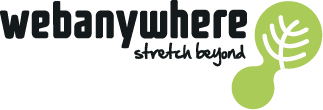The Benefits of LMS for Nonprofits

A Learning Management System is a digital platform designed to create, distribute, and manage educational content and training programs. It serves as a hub where nonprofits can streamline their instructional courses, track learner progress, and assess the effectiveness of their training initiatives.
In the nonprofit sector, the role of an LMS is pivotal. With typically limited resources and a diverse range of training needs, nonprofits stand to benefit immensely from the efficiency and scalability offered by LMS platforms. These systems enable them to deliver high-quality, consistent training to volunteers and staff, irrespective of their geographical locations.
This article dives into the benefits of LMS for nonprofits. It explores how these e-learning systems address common challenges faced by nonprofits, enhance the efficiency of training programs, and contribute significantly to organizational growth and effectiveness.
Understanding Learning Management Systems
A LMS is a technology designed to plan, execute, and assess a specific learning process. It is a framework that handles all aspects of the learning process, acting as a repository for course content and a conduit for managing course registration, delivery, and assessment, as well as tracking the progress and performance of participants.
The core features of an LMS are diverse, enhancing its utility in various educational scenarios. These include content delivery, which allows educators to distribute varied learning materials; tracking and assessment functionalities, which monitor and evaluate learner progress and performance; and customization capabilities, which enable tailoring the learning experience to meet specific educational needs and goals. These features collectively make LMS a versatile tool for managing all aspects of the learning process.
The Role of LMS in Nonprofits
Nonprofits often need help with training, stemming from budget constraints and limited resources. They must provide quality education and skill development to their staff and volunteers, but traditional training methods can be prohibitively expensive and logistically complex. Additionally, managing diverse training needs for various roles within the organization can strain their limited resources.
LMS also offers a comprehensive solution to these issues. Learning management systems can significantly reduce the costs of physical training materials, venue rentals, and travel expenses. They also streamline the training process, allowing nonprofits to efficiently manage and deliver diverse educational content tailored to different roles and responsibilities. The efficiency and flexibility of LMS make it an ideal tool for nonprofits to overcome their training challenges while maximizing the impact of their limited resources.
Benefits of LMS for Nonprofits
Integrating Learning Management Systems into nonprofit organizations brings many benefits, significantly enhancing the effectiveness and reach of their training programs.
Cost-Effective Training Solutions
One of the most significant benefits of LMS for nonprofits is its substantial cost savings. Traditional training methods can be expensive, requiring physical materials, space rentals, and travel expenses. An LMS eliminates many of these costs by delivering training online. This digital approach reduces direct expenses and minimizes time away from work for staff and volunteers, leading to improved budget efficiency.
Streamlining the Training Process
LMS streamlines the training process in several ways. First, it centralizes all training materials, making them easily accessible to learners regardless of location. This centralization reduces the administrative burden associated with distributing and updating training content. Moreover, LMS automates many aspects of the training process, from registration to tracking progress and providing feedback. This automation enhances operational efficiency, allowing nonprofit organizations to focus more on their core missions.
Enhancing Engagement and Retention
Engagement is a critical factor in the success of any training program. LMS platforms have various tools designed to boost learner engagement, such as interactive content, gamification, and social learning features. These tools make learning more interactive and enjoyable, which can significantly improve retention rates. Engaged learners are more likely to complete courses and retain the information, leading to better training outcomes.
Accessibility and Flexibility
LMS offers unparalleled accessibility and flexibility, which is especially beneficial for nonprofits. Learners can access training materials anytime, fitting their learning around other commitments. This flexibility is crucial for volunteers and staff with irregular schedules who cannot commit to traditional, fixed training sessions. Such accessibility ensures everyone has an equal opportunity to develop their skills and knowledge, fostering a more inclusive learning environment.
Data-Driven Insights for Improved Decision Making
Finally, the analytics and reporting capabilities of LMS are invaluable for nonprofits. These features provide detailed insights into the effectiveness of training programs, learner progress, and areas where improvements might be needed. By analyzing this data, nonprofit organizations can make informed decisions about their training strategies, ensuring that they are meeting the needs of their learners and achieving their educational objectives. The ability to track and measure the impact of training also supports greater accountability and helps demonstrate the value of training initiatives to stakeholders.
Implementing LMS in Your Nonprofit
Selecting the right LMS for a nonprofit requires carefully considering several key factors. Choosing an LMS that aligns with the organization’s specific goals and training needs is crucial. The system should be user-friendly, offering ease of use for both learners and administrators.
Customization and scalability are essential to ensure the LMS can grow with the nonprofit and adapt to changing requirements. Additionally, cost-effectiveness is a vital consideration for budget-conscious nonprofits. Integration capabilities with other tools and systems and robust support and training are critical factors to ensure smooth implementation and effective utilization.
Are you looking for a comprehensive LMS solution tailored to the unique needs of the nonprofit sector? Book a demo to explore how Webanywhere can transform your nonprofit’s training strategy and maximize educational impact.
Learning Management System Benefits for Nonprofits
Adopting a Learning Management System can be transformative for nonprofits, offering benefits that align with their unique needs. Key advantages include cost-effective training solutions, reducing the need for expensive physical materials, and in-person sessions. LMS streamlines the training process, allowing for efficient management and distribution of educational content. It enhances learner engagement and retention through interactive and dynamic tools and provides unparalleled flexibility, enabling learners to access training anytime and anywhere.
Nonprofits are encouraged to consider an LMS as a strategic solution to meet their training and development needs. Embracing this technology can lead to more effective training, better resource management, and, ultimately, a stronger impact in their communities. The decision to implement an LMS is not just a step toward technological advancement but a leap toward achieving greater organizational success.
Get in touch with Webanywhere to book a demo and discuss your organization’s learning requirements.
